- Home
- Warhammer 40K
Forge Master - David Annandale Page 3
Forge Master - David Annandale Read online
Page 3
The ships reached firing range. The flashes from the enemy were now true threats, and the Verdict of the Anvil answered the orks with its own fury. The forward bombardment cannons opened up. The ram ships were already swinging wide for their attack runs, but the other ork ships flew into the teeth of the Salamanders’ monstrous ordnance, either trusting in the strength of their shields, or too single-minded to think of evading. The leading Ravager was the first sacrifice on the altar of war. It was in the process of launching a massive torpedo salvo when the Verdict’s fire hit. The chain of explosions was immense. For a few moments, the ship became a comet, its momentum granting the flaming mass a strange coherence. Then even larger blasts from what had been ammunition bays spread the wreckage wide, forcing its companion ships off their direct course.
One of the Onslaughts had been coming on too hard on the Ravager’s heels. The attack ship was an awkward beast: merciless in a direct assault, with formidable forward shields and batteries, but with the manoeuvrability of a sauroch in mud. It rose up, flying above the worst of the boiling gases, exposing its vulnerable belly to the Verdict’s guns. The strike cruiser’s bombardment raked the Onslaught, tearing through useless shields and cracking the ork ship open like an egg. The Onslaught disintegrated, littering the void with metal fragments and tumbling, flash-frozen corpses.
The second Ravager swerved to port, then returned to its course. Its racks of torpedoes fired. They came at the Verdict of the Anvil in an undisciplined swarm. Mulcebar saw premature detonations, erratic flight paths, even outright collisions. But there were so many, too many. The orks were geniuses of quantity. It didn’t matter how imprecise their technology was. If they hurled enough spears at their target, some were bound to hit.
The Verdict’s side batteries lit the void with a hellish shield of explosions. They created a net of plasma and las, missiles and beams, a net of destruction to catch and exterminate any ship or projectile that dared approach. But there were too many.
‘Port, thirty degrees,’ Mulcebar called, and the Verdict began its turn into the torpedo salvo, reducing its profile. The impact warning sounded, whooping through the four-kilometre length of the ship. Three torpedoes slammed into the prow. The first was a dud, flattening itself against the shields. The other two exploded within less than a second of each other, embracing the bow of the ship in a blossom of flame. The void shields crackled, flaring bright with the overload, and flickered. The weakness was brief, but it was just long enough. Another torpedo struck the port side. The hull shook. Crimson runes cascaded across the tacticarium screens. Mulcebar took them in, seeing cause for both relief and concern. There were no breaches. But an entire rack of port batteries had taken a direct hit and been destroyed. There was a gap in the ship’s defences now.
The remaining turrets blazed hell at the Ravager, while the prow cannons sought out the remaining Onslaught. Mulcebar looked for the Brutes, and saw the two ramming ships beginning their attack, one on each flank. He couldn’t evade or outrun them. There might have been a slim chance of foiling the charge of one, but now an inescapable pincer was closing around the Verdict. The hope was to shatter the claws before they could meet with the flesh of the ship.
‘Side batteries, target ram ships,’ Mulcebar said. ‘Helmsmaster, take us down.’ The strike cruiser began as sharp a plunge as a beast its size could manage. The prow dropped below the plane of the engagement. The Brutes adjusted and continued to close. The Onslaught was slower. It had been weathering the storm of the Verdict’s barrage through a combination of speed, counter-measures and sheer, brutal resilience. Its own firepower was pressing the Verdict’s void shields hard. Now its las and missiles passed over the Verdict’s prow. The hits were more glancing, over a wider area of shield, and for a precious second, Mulcebar’s gunners again had direct shot on an ork ship’s weaker armour. They took it. The cannon gutted the Onslaught. The colossal ordnance slammed deep into the belly of the ship and exploded, tearing the vessel in half. Its pieces tumbled end over end through the void, trailing gas and wreckage.
The Ravager was passing port and aft. In the last second before it moved beyond the arc of the remaining batteries, a lance struck its engines. The port side of the torpedo boat flashed like the death of a sun, then gouted red flame and ugly smoke. The ship spun into a drunken spiral, and a few seconds later the glare of its starboard engines went dark. Intact but drifting, the Ravager fell into the dark of the void. The oily flames of its wound were the receding marker of its existence.
Four ships down, and the length of the war could still be counted in seconds. Four kills, but Mulcebar didn’t allow himself to feel any satisfaction. It was the nature of all war, and especially void war, for crushing victory to become final defeat on a second’s whim of fate. The ramming ships were still coming for the Verdict. The strike cruiser was injured, and it hadn’t even begun its run at the kill kroozer. ‘Kill those Brutes!’ he shouted. He could feel the fate of the mission, and then of millions of souls, balancing on the cusp of the next few moments.
The starboard batteries set the heavens ablaze with turret- and missile-fire. Lances seared the dark, reaching for their agile, speeding target. Brutes were vessels designed for but a single function, but it was an act so completely at one with the ork character that there was a raw, ugly brilliance to their design. The prow accounted for over a third of a Brute’s length. It was an enormous, serrated knife blade, and every bolt, every rivet, every scrap of metal of the ship was in the service of that blade. The vessels were armoured not to withstand enemy fire but so they could hit harder. Their engines were better than those of other escort ships. They were faster and more manoeuvrable. And all of these strengths were conceived so that the Brute could fulfil its simple, crude destiny: to smash into another ship at high speed and rend it asunder. It was a crewed torpedo a thousand metres long.
Its size, however, meant that it could not evade fire forever, no matter how swift and agile it was. The pincer closed, the ram ships barrelled in, and on the starboard flank, the lances reached out, grasped and burned. Their target had been acquired. Energy concentrated into beams of destruction incarnate sliced deep into its core. Its engines blew, and though it was as if a dwarf star had gone nova in close proximity to the Verdict of the Anvil, the wash of superheated gases over the struggling void shields was a soft caress compared to the blow the Brute had so eagerly promised. The shock wave slammed into the strike cruiser. The Verdict yawed like a log in an angry river. The hull groaned.
That was to starboard. But to port...
Even as the lances were striking their quarry, Mulcebar was calling for a hard turn to port. The portside Brute had found the gap in the strike cruiser’s fire arc and was storming forwards. The turn was a desperate gambit to change the Verdict’s orientation and bring weaponry to bear on the ork ship-killer. Mulcebar had seen grand cruisers have their backs broken by the blow of a Brute. Now the Verdict’s hull did not just groan, it shrieked the agony of torque as the roll, the turn and the drive forwards unleashed warring physical forces. The movement was fast for a cruiser, and it was tortuously slow.
‘Brace for impact,’ Mulcebar ordered. The shriek of the klaxons climbed in pitch and rhythm.
And there, with the seconds draining away, the Brute appeared in the sights of one of the port batteries. Missiles streaked to intercept the ram ship. It was so close, and so big, that its speed was no longer a factor. The rockets couldn’t miss.
They didn’t. Projectiles a hundred metres long struck the Brute head-on. The punch of their mass was fused with the fury of their explosives. On the bridge, the portside occuliport flashed crimson from the detonation.
The tacticarium screen to Mulcebar’s right displayed the pageantry of destruction. The Brute emerged from the heart of the explosion. It was battered and rocked by secondary blasts. It had been knocked off course, and was skewing towards the Verdict at an oblique angle. It had been slowed. As
flames plumed from all parts of the ork ship, it was hard to tell if its engines were still working, or even if it were still being piloted.
In the end, Mulcebar was looking at minor blessings. The vicious prow, though damaged, was not gone. The ship had not been destroyed. Collision was inevitable.
The Brute hit. It dragged itself along the midship flank, gouging the Verdict open. The impact shook the entire length of the ship with the force of an earthquake. Mulcebar kept his feet, but servitors and human crew were thrown down. He felt the wound reach into the heart of his ship. Then the Brute revealed itself to be a dying beast and it was burst apart by an internal blast. Its end was its final curse on the Verdict as it fed its flames into the gaping breach, infecting the cruiser with an immolating disease. The fever raced though corridors, leaping past shredded bulkheads. Power flickered and wavered. The overloaded void shields collapsed.
The runes on the tacticarium screens tumbled over each other in a litany of disaster. Each was a different message of woe, but together they spoke a single word: doom.
Mulcebar cursed as the containment mechanisms failed and the fire spread its wings.
In the torpedo room, the battle was experienced as sound and movement, punctuated by fragmentary glimpses through occuliports. The sounds were an oratorio of machine rage. An immense choir of booms was punctuated by the strobing of energy weapons and the shrieks of metal. When the Brute struck, it was as if Mount Deathfire had erupted in the heart of the ship. Seismic pain shook the walls and floor, and the sound was so gigantic that it blotted out thought.
The initial impact passed, but the hull continued to tremble with smaller explosions. A constant vibration hummed through the walls, and something distant but terrible murmured through the ventilation system. Ha’garen recognised the voice of fire. Beneath his feet, the injured ship quivered.
At the far end of the torpedo room was a maintenance console. Ha’garen ran to it. Mechadendrites extended from his neck and plugged themselves in beneath the screen. The console was designed to monitor and service the atmospheric conditions local to the room itself, and nothing more, but it was still a conduit to the entire nervous system of the ship. Ha’garen’s consciousness became one with the Verdict of the Anvil. He had been aware of the anguish of the vessel’s machine-spirit before, but now its wailing of anger and pain was overwhelming, and for a moment it filled his entire existence. A tiny portion of his mind noted that his body was uttering a litany of calming, and he channelled the power of the ritual directly into the ship’s soul. Though the machine-spirit’s agony did not diminish, its frenzy abated just enough for Ha’garen to see and think clearly.
He took in the damage and the growth of the fire, traced the path it would follow, and evaluated the options in the same fractions of a second that he had trained to read a battlefield. The wound along the port flank was long and deep, and its effects spread far beyond the actual gap in the hull. The integrity of electrical and life-sustaining systems was badly compromised. The ship could be saved. Power could be stabilised and routed to engines, shields and weapons. Most of the Verdict of the Anvil would still be able to support life. It could still be the Emperor’s might and Vulkan’s wrath, and it could still complete its mission. Could. But all these things would become possible only through immediate, drastic action. If the Verdict were not saved in the next few seconds, it would not be saved at all.
There was precisely one option: amputation.
The fire roared through the passageways of the ship, gorging on combustibles. Servitors were incinerated at their posts and as they plodded along their dutiful paths. Some writhed, their nerve endings reacting to the burn even while their brains remained as oblivious to their deaths as to their lives. The sentient crew – serfs, grunts, officers, technicians, priests – fled before the flames, but the fire outpaced them and ran them down, devouring the oxygen they needed to scream as their flesh blackened to crisp ash. Salamanders caught by the inferno survived inside their armour, but there was nothing they could do for the humans, some of whom turned, in their final moments, with pleading arms outstretched to the gods who had suddenly been found wanting. Bulkhead doors dropped, automatically triggered to seal off the damaged area. The attempt was failing. Too many frames had been twisted out of true. There were too many alternate paths for the fire to take. It found them all. It was a lightning cancer flashing through the arteries and organs of the ship.
Fore and aft of the fire, well beyond the damage wrought by the Brute, in zones structurally sound, regions that were still refuges, massive doors closed, locked, sealed. Here, the frames were perfect. The barriers were absolute. Many crew members saw the doors shut. More than a few guessed what was about to happen.
An exterior voice intruded on Ha’garen’s focus. It was Ba’birin’s. ‘Brother, what are you doing?’ His hand was on Ha’garen’s shoulder. Information about the grip and its pressure reached Ha’garen’s mind as pure data. He did not feel the tug. His awareness of his physical self had been reduced to information, and was no more visceral than the electrical impulses down which his identity travelled and through which he acted. He redirected enough of his self to answer Ba’birin.
‘I am acting to save the ship,’ he said.
‘There are large numbers of active personnel signals in those sealed areas.’
The monitor, Ha’garen realised, must be displaying what he was calling up. ‘Yes,’ he said.
‘We must extract them,’ Ba’birin insisted.
‘We cannot,’ Ha’garen said. He completed the procedure.
Explosive bolts fired, blowing wide hatches and doors. Valves burst open. Across a third of the length of the Verdict of the Anvil, the ship opened itself to the void. Its atmosphere was stripped away, sucked out with a burst of smoke, oil and flame, and puffs of water crystal. The fire was robbed of its breath in an instant. So were the trapped humans. Their deaths were quick but agonised. Their jaws widened, desperately grasping for the absent air. Some held their breath, and their lungs exploded. They were, perhaps, the fortunate ones. The others remained conscious longer. They had time, so much time, ten eternal chrono-ticks to know what was happening to them, to suffer the foretaste of hell and understand that there would be no rescue. They had not been abandoned. They had been sacrificed. Tick, and tick, and tick, and their chests heaved with the effort to fill empty lungs. Their muscles locked, and then began to convulse. Water vapour expanded and their bodies swelled, and still the unlucky ones did not pass out. When they did, their bodies lived on for more than a minute.
Some of the dead were sucked from the ship by the decompression. Most remained where they fell. Ha’garen had killed the atmosphere but not the gravity. The bodies in their thousands would wait for disposal. They were a carpet of dead matter.
But the fire was out, killed as quickly as the humans. The Verdict’s machine-spirit calmed.
Ha’garen withdrew from the ship’s being. He retracted his mechadendrites. Ba’birin was staring at him, horror etched deeply into his obsidian features.
‘In Vulkan’s name, what have you done?’ the sergeant whispered.
‘I preserved the ship.’ Ha’garen was not boasting. He was speaking a simple truth.
‘You have killed thousands of fellow Nocturneans.’
‘I saved many thousand more.’ He wasn’t trying to defend himself. He was simply giving Ba’birin all the information.
‘And there was no other alternative? You acted without thinking.’
‘That is not true.’ Ha’garen had examined every possible course of action, and had chosen the best alternative. When he was part of the machine circuit, his thoughts were quicksilver lightning. He had weighed the costs of his action carefully. He knew exactly what he had done, down to the last tortured serf. He also knew precisely what the cost would have been if he had done nothing, or even waited a few more seconds.
Ba’bir
in shrugged, not convinced. ‘Remember the human, brother,’ he said as he turned away. ‘If you forget, you will kill us all.’
Mulcebar read the tally of casualties and damage. The numbers were grim, but could so easily have been worse. A large area of the ship was sealed off and would remain so until the Verdict could return to Prometheus and dry-dock for repairs. But the ship could pursue. It could fight. It was responding to commands from the bridge once more. Its machine-spirit was snarling softly, eager for retaliation.
There was a mission to complete.
‘Bring us back to our pursuit heading,’ Mulcebar said. When the helmsmaster nodded, the captain added, ‘Get me that ork.’
The Verdict of the Anvil was wounded, but not hobbled, not crippled. The predator could still hunt, and the duty of the Salamanders was now twinned with the ship’s thirst for vengeance. A rage for the wounds and for the dead permeated the walls of the vessel, and Mulcebar wasn’t sure if he was feeling his own anger and that of his men, or picking up the Verdict’s own fury. Perhaps there was no distinction to be made. The engines flared the searing white of that fury, and the Verdict powered forwards, building momentum as it closed on its prey.
The prey that it must not kill. The prey against which it could use little more than speed and void shields. And a lethal injection of warriors.
The kill kroozer had put some distance between itself and the Verdict. Though the battle with the escort had been brief, there would have been time for the flagship to reverse course and engage with its wounded enemy. Mulcebar was surprised that it had not. He was also concerned. For orks to avoid, or at the very least ignore, an obvious scrap, they had to be focused on something else that was extraordinarily compelling. Some lure, whether instinct, intuition or perverse chance, was calling that ship onwards. He wondered again about the secret the Salamanders were chasing. Did the orks know what was enhancing their planetside forces? He thought not. But it didn’t matter, if the mere existence of this power was enough to draw them on.

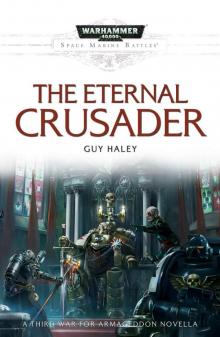 The Eternal Crusader - Guy Haley
The Eternal Crusader - Guy Haley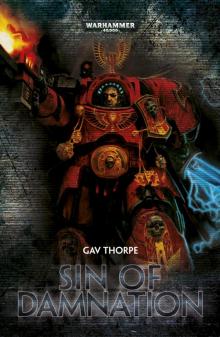 Sin of Damnation - Gav Thorpe
Sin of Damnation - Gav Thorpe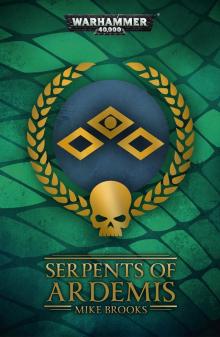 Serpents of Ardemis - Mike Brooks
Serpents of Ardemis - Mike Brooks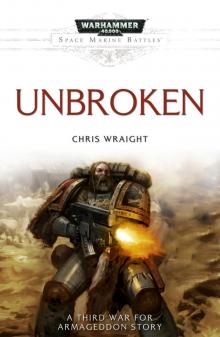 Unbroken - Chris Wraight
Unbroken - Chris Wraight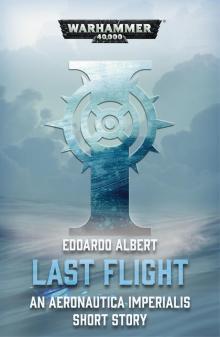 Last Flight - Edoardo Albert
Last Flight - Edoardo Albert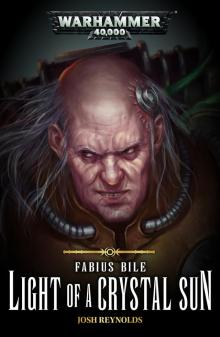 Light of a Crystal Sun - Josh Reynolds
Light of a Crystal Sun - Josh Reynolds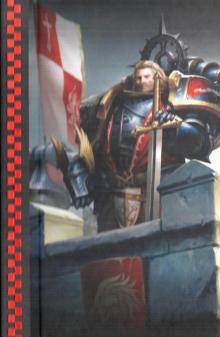 Lion El'Jonson- Lord of the First - David Guymer
Lion El'Jonson- Lord of the First - David Guymer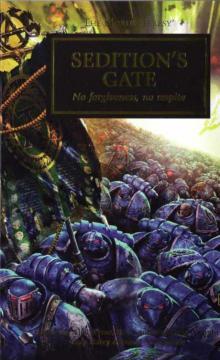 Sedition's Gate - Nick Kyme & Chris Wraight
Sedition's Gate - Nick Kyme & Chris Wraight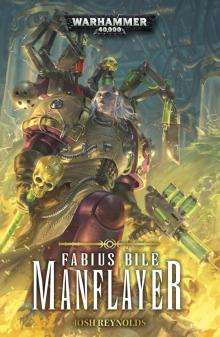 Manflayer - Josh Reynolds
Manflayer - Josh Reynolds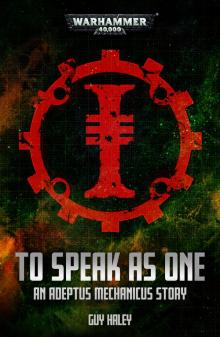 To Speak as One - Guy Haley
To Speak as One - Guy Haley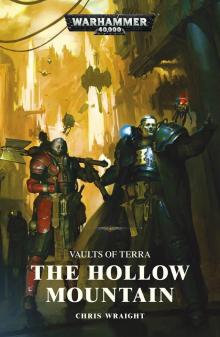 Vaults of Terra- The Hollow Mountain - Chris Wraight
Vaults of Terra- The Hollow Mountain - Chris Wraight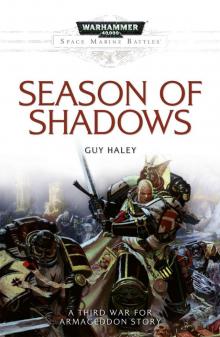 Season of Shadows - Guy Haley
Season of Shadows - Guy Haley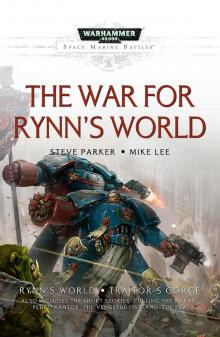 The War for Rynn's World - Steve Parker & Mike Lee
The War for Rynn's World - Steve Parker & Mike Lee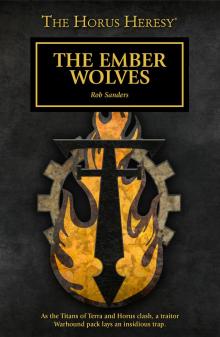 The Ember Wolves - Rob Sanders
The Ember Wolves - Rob Sanders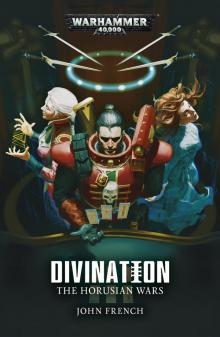 Divination - John French
Divination - John French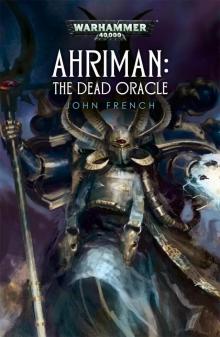 The Dead Oracle - John French
The Dead Oracle - John French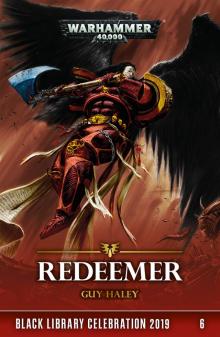 Redeemer - Guy Haley
Redeemer - Guy Haley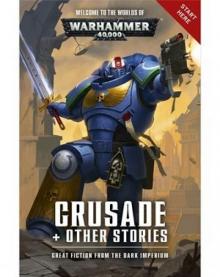 Crusade & Other Stories - Dan Abnett Et Al.
Crusade & Other Stories - Dan Abnett Et Al.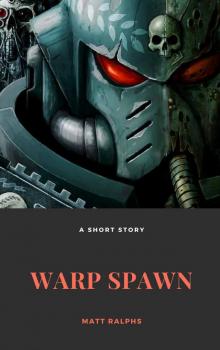 Warp Spawn - Matt Ralphs
Warp Spawn - Matt Ralphs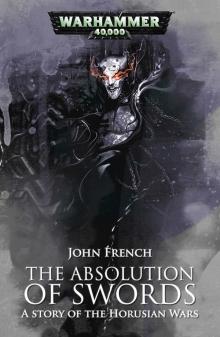 The Absolution of Swords - John French
The Absolution of Swords - John French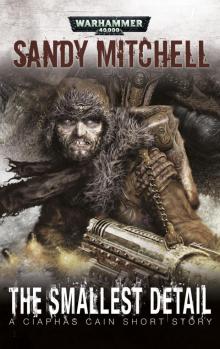 The Smallest Detail - Sandy Mitchell
The Smallest Detail - Sandy Mitchell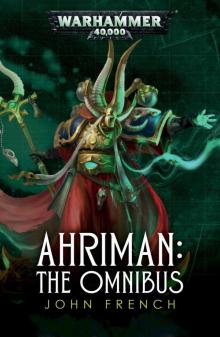 The Omnibus - John French
The Omnibus - John French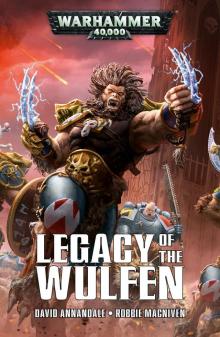 Legacy of the Wulfen - David Annandale & Robbie MacNiven
Legacy of the Wulfen - David Annandale & Robbie MacNiven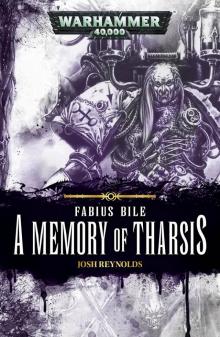 A Memory of Tharsis - Josh Reynolds
A Memory of Tharsis - Josh Reynolds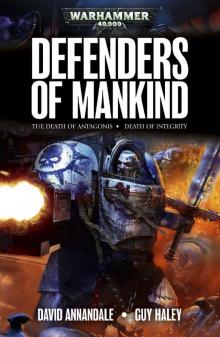 Defenders of Mankind - David Annandale & Guy Haley
Defenders of Mankind - David Annandale & Guy Haley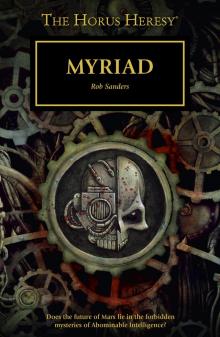 Myriad - Rob Sanders
Myriad - Rob Sanders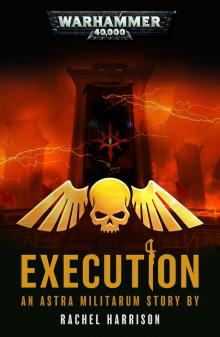 Execution - Rachel Harrison
Execution - Rachel Harrison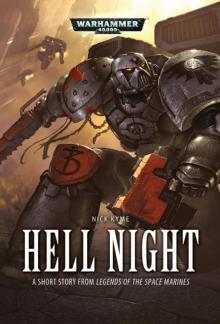 Hell Night - Nick Kyme
Hell Night - Nick Kyme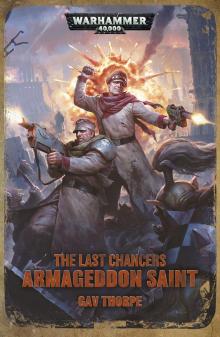 Armageddon Saint - Gav Thorpe
Armageddon Saint - Gav Thorpe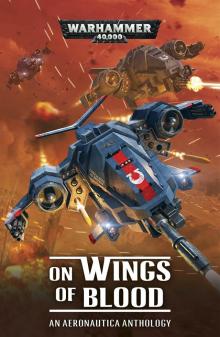 On Wings of Blood
On Wings of Blood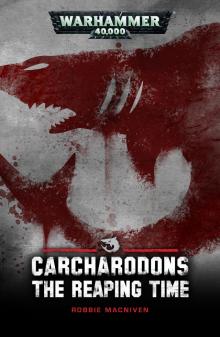 The Reaping Time - Robbie MacNiven
The Reaping Time - Robbie MacNiven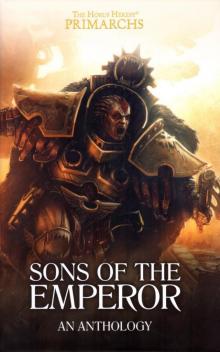 Sons of the Emperor
Sons of the Emperor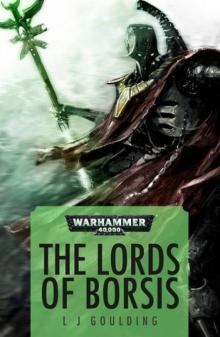 The Lords of Borsis - L J Goulding
The Lords of Borsis - L J Goulding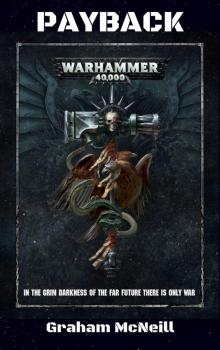 Payback - Graham McNeill
Payback - Graham McNeill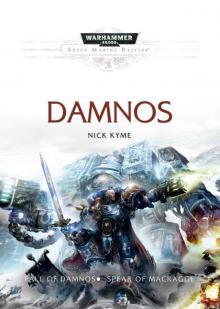 Damnos - Nick Kyme
Damnos - Nick Kyme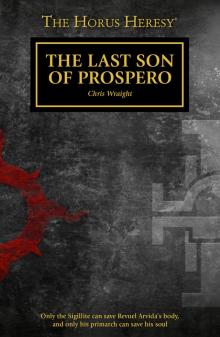 The Last Son of Prospero - Chris Wraight
The Last Son of Prospero - Chris Wraight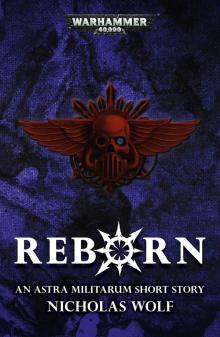 Reborn - Nicholas Wolf
Reborn - Nicholas Wolf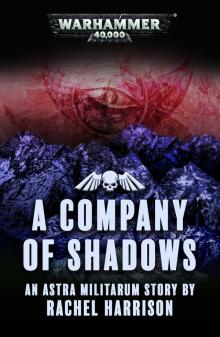 A Company of Shadows - Rachel Harrison
A Company of Shadows - Rachel Harrison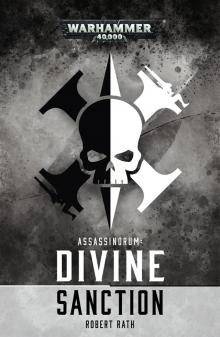 Assassinorum- Divine Sanction - Robert Rath
Assassinorum- Divine Sanction - Robert Rath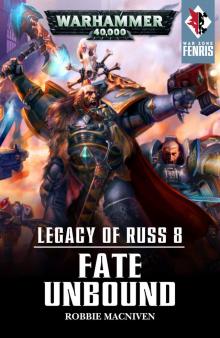 Fate Unbound - Robbie MacNiven
Fate Unbound - Robbie MacNiven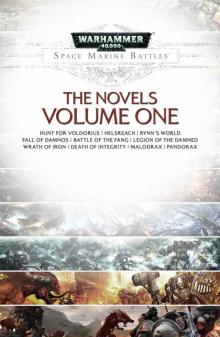 Space Marine Battles - the Novels Volume 1
Space Marine Battles - the Novels Volume 1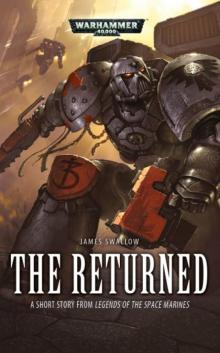 The Returned - James Swallow
The Returned - James Swallow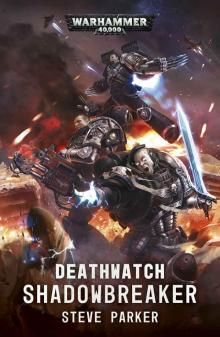 Shadowbreaker - Steve Parker
Shadowbreaker - Steve Parker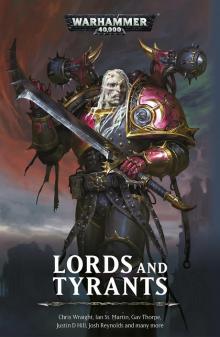 Lords and Tyrants
Lords and Tyrants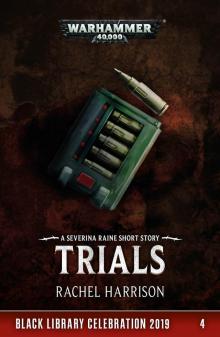 Trials - Rachel Harrison
Trials - Rachel Harrison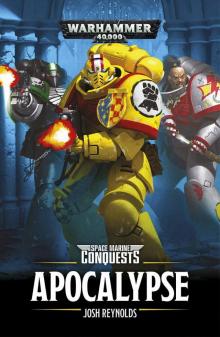 Apocalypse - Josh Reynolds
Apocalypse - Josh Reynolds The labyrinth - Richard Ford
The labyrinth - Richard Ford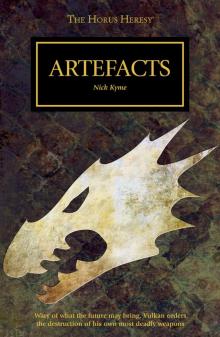 Artefacts - Nick Kyme
Artefacts - Nick Kyme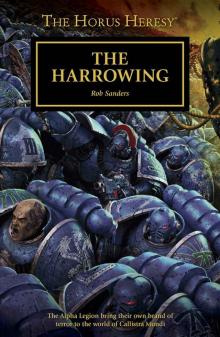 The Harrowing - Rob Sanders
The Harrowing - Rob Sanders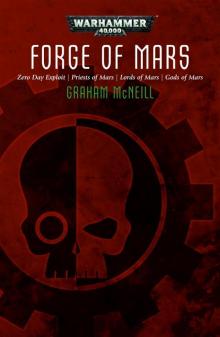 Forge of Mars - Graham McNeill
Forge of Mars - Graham McNeill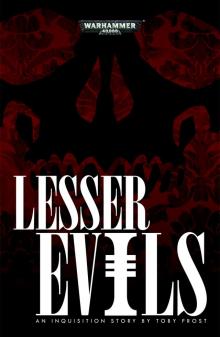 Lesser Evils - Toby Frost
Lesser Evils - Toby Frost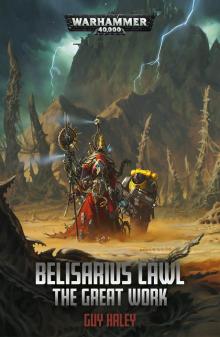 Belisarius Cawl- the Great Work - Guy Haley
Belisarius Cawl- the Great Work - Guy Haley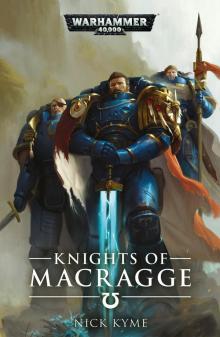 Knights of Macragge - Nick Kyme
Knights of Macragge - Nick Kyme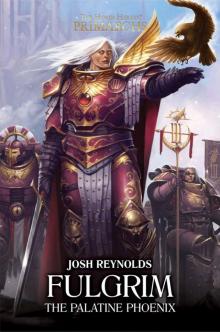 Fulgrim- The Palatine Phoenix - Josh Reynolds
Fulgrim- The Palatine Phoenix - Josh Reynolds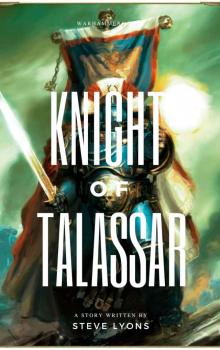 Knight of Talassar - Steve Lyons
Knight of Talassar - Steve Lyons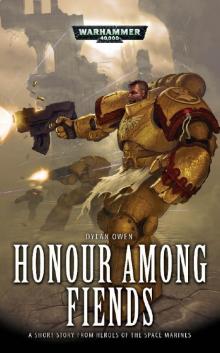 Honour Among Fiends - Dylan Owen
Honour Among Fiends - Dylan Owen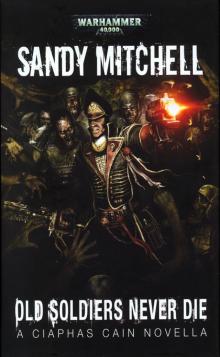 Old Soldiers Never Die - Sandy Mitchell
Old Soldiers Never Die - Sandy Mitchell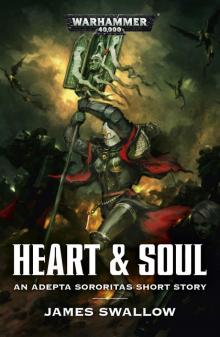 Heart & Soul - James Swallow
Heart & Soul - James Swallow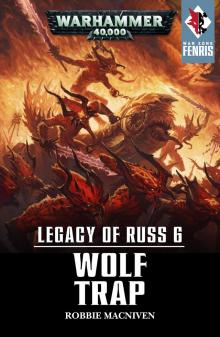 Wolf Trap - Robbie MacNiven
Wolf Trap - Robbie MacNiven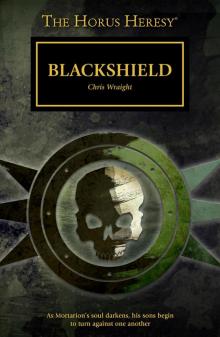 Blackshield - Chris Wraight
Blackshield - Chris Wraight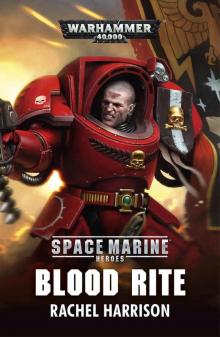 Blood Rite - Rachel Harrison
Blood Rite - Rachel Harrison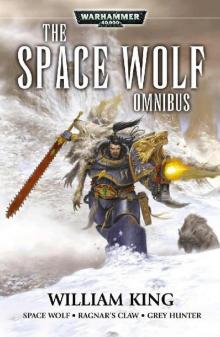 The Space Wolf Omnibus - William King
The Space Wolf Omnibus - William King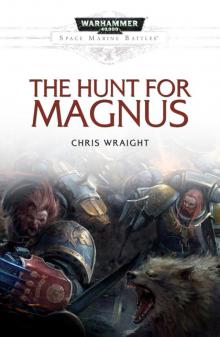 The Hunt for Magnus - Chris Wraight
The Hunt for Magnus - Chris Wraight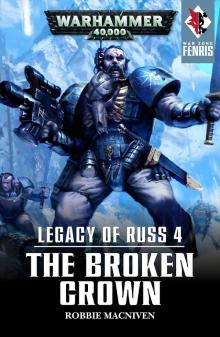 The Broken Crown - Robbie MacNiven
The Broken Crown - Robbie MacNiven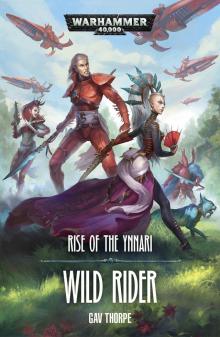 Wild Rider - Gav Thorpe
Wild Rider - Gav Thorpe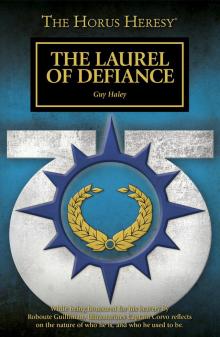 The Laurel of Defiance - Guy Haley
The Laurel of Defiance - Guy Haley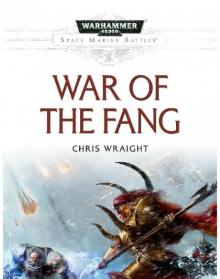 War of the Fang - Chris Wraight
War of the Fang - Chris Wraight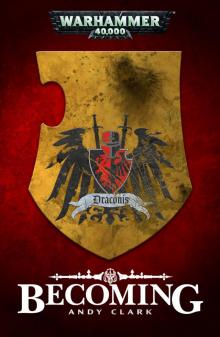 Becoming - Andy Clark
Becoming - Andy Clark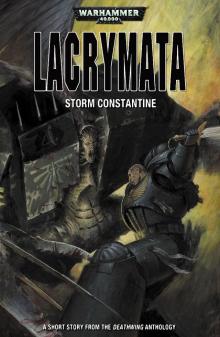 Lacrymata - Storm Constantine
Lacrymata - Storm Constantine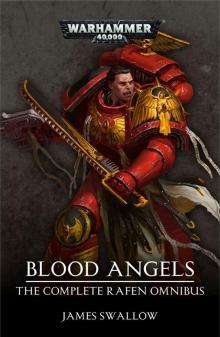 Blood Angels - The Complete Rafen Omnibus - James Swallow
Blood Angels - The Complete Rafen Omnibus - James Swallow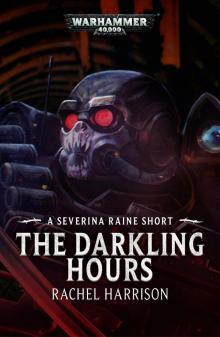 The Darkling Hours - Rachel Harrison
The Darkling Hours - Rachel Harrison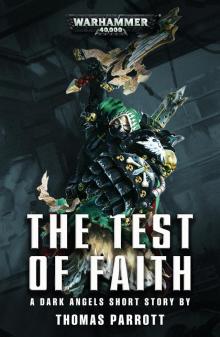 The Test of Faith - Thomas Parrott
The Test of Faith - Thomas Parrott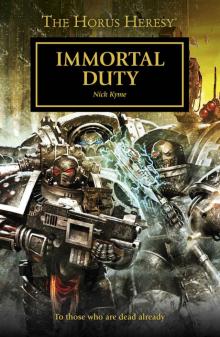 Immortal Duty - Nick Kyme
Immortal Duty - Nick Kyme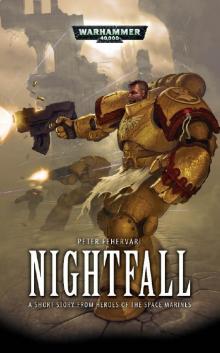 Nightfall - Peter Fehervari
Nightfall - Peter Fehervari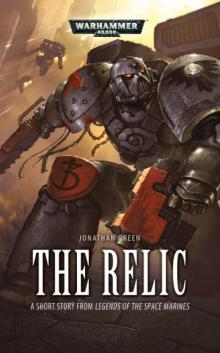 The Relic - Jonathan Green
The Relic - Jonathan Green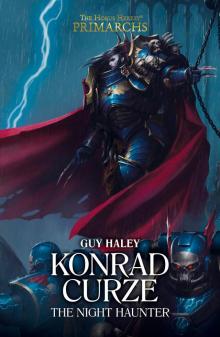 Konrad Curze the Night Haunter - Guy Haley
Konrad Curze the Night Haunter - Guy Haley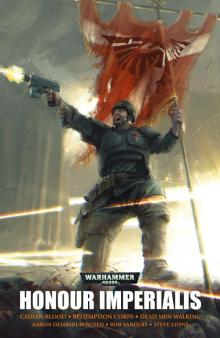 Honour Imperialis - Aaron Dembski-Bowden
Honour Imperialis - Aaron Dembski-Bowden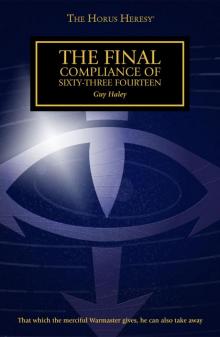 The Final Compliance of Sixty-Three Fourteen - Guy Haley
The Final Compliance of Sixty-Three Fourteen - Guy Haley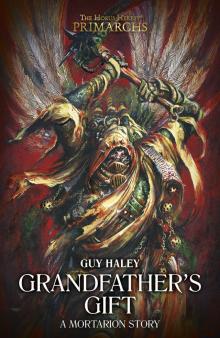 Grandfather’s Gift - Guy Haley
Grandfather’s Gift - Guy Haley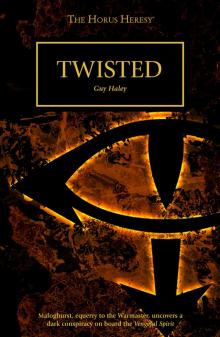 Twisted - Guy Haley
Twisted - Guy Haley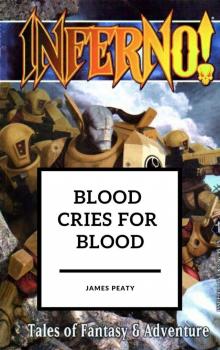 Blood Cries for Blood - James Peaty
Blood Cries for Blood - James Peaty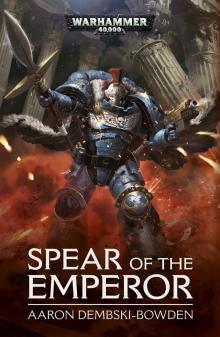 Spear of the Emperor - Aaron Dembski-Bowden
Spear of the Emperor - Aaron Dembski-Bowden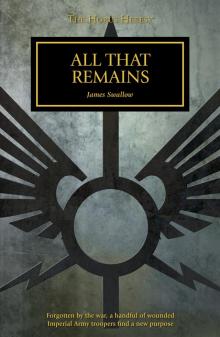 All That Remains - James Swallow
All That Remains - James Swallow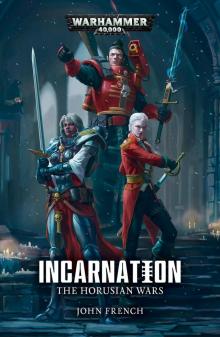 Incarnation - John French
Incarnation - John French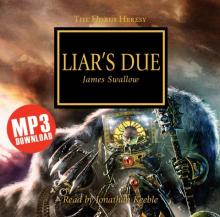 Liar's Due - Ben Swallow
Liar's Due - Ben Swallow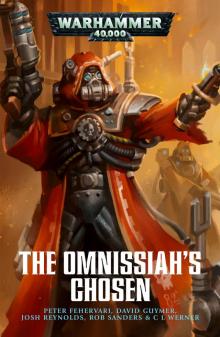 The Omnissiah's Chosen - Peter Fehervari
The Omnissiah's Chosen - Peter Fehervari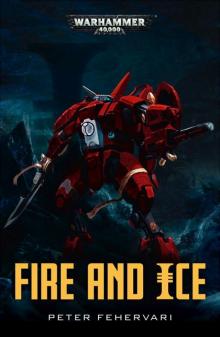 Fire and Ice - Peter Fehervari
Fire and Ice - Peter Fehervari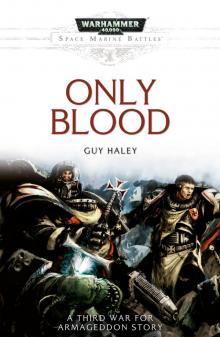 Only Blood - Guy Haley
Only Blood - Guy Haley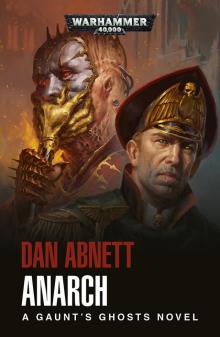 Anarch - Dan Abnett
Anarch - Dan Abnett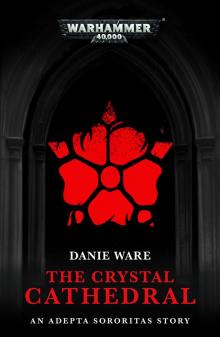 The Crystal Cathedral - Danie Ware
The Crystal Cathedral - Danie Ware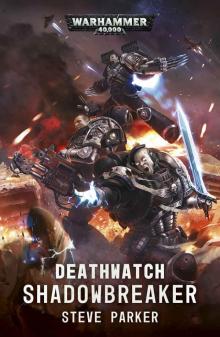 Shadowbreaker
Shadowbreaker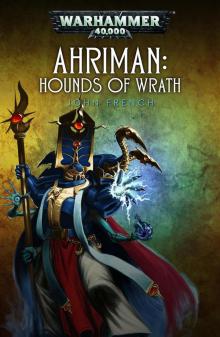 Hounds of Wrath - John French
Hounds of Wrath - John French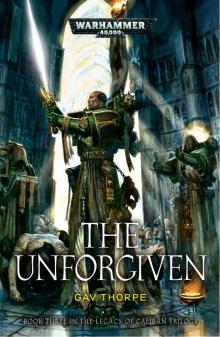 The Unforgiven - Gav Thorpe
The Unforgiven - Gav Thorpe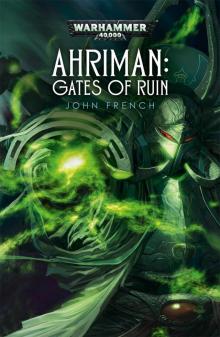 Gates of Ruin - John French
Gates of Ruin - John French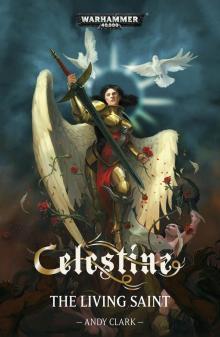 Celestine - Andy Clark
Celestine - Andy Clark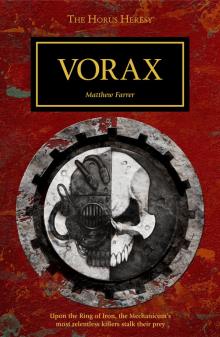 Vorax - Matthew Farrer
Vorax - Matthew Farrer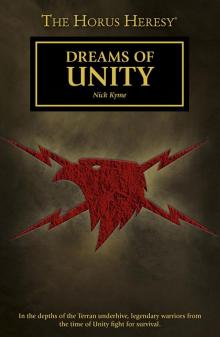 Dreams of Unity - Nick Kyme
Dreams of Unity - Nick Kyme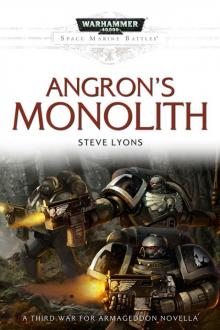 Angron's Monolith - Steve Lyons
Angron's Monolith - Steve Lyons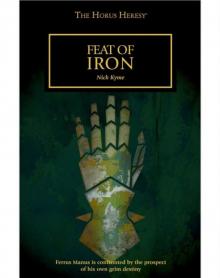 Feat of Iron - Nick Kyme
Feat of Iron - Nick Kyme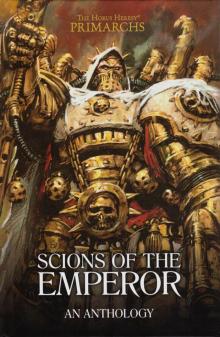 Scions of the Emperor
Scions of the Emperor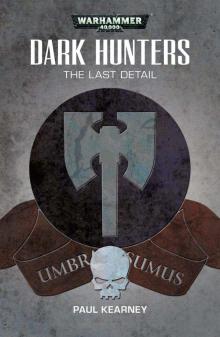 The Last Detail - Paul Kearney
The Last Detail - Paul Kearney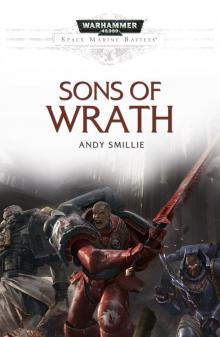 Sons of Wrath - Andy Smillie
Sons of Wrath - Andy Smillie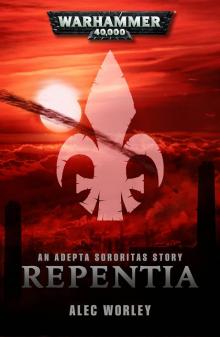 Repentia - Alec Worley
Repentia - Alec Worley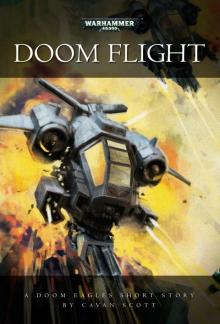 Doom Flight - Cavan Scott
Doom Flight - Cavan Scott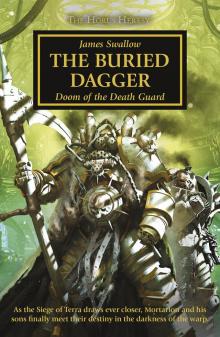 The Buried Dagger - James Swallow
The Buried Dagger - James Swallow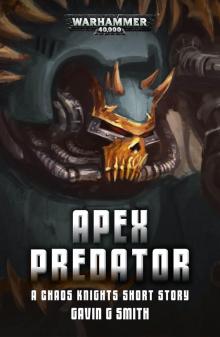 Apex Predator - Gavin G Smith
Apex Predator - Gavin G Smith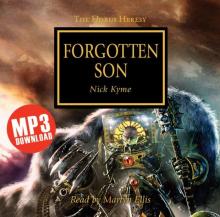 Forgotten Sons - Nick Kyme
Forgotten Sons - Nick Kyme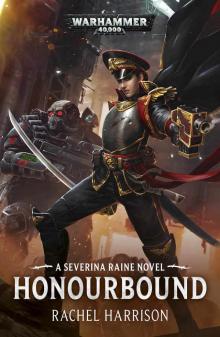 Honourbound - Rachel Harrison
Honourbound - Rachel Harrison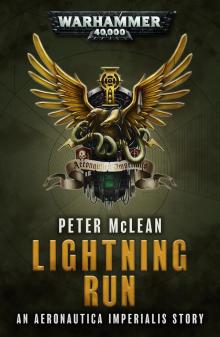 Lightning Run - Peter McLean
Lightning Run - Peter McLean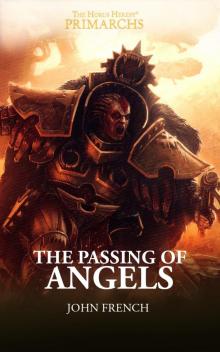 The Passing of Angels - John French
The Passing of Angels - John French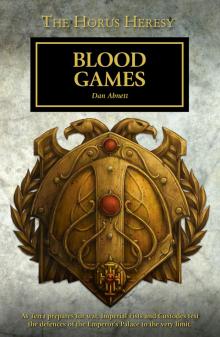 Blood Games - Dan Abnett
Blood Games - Dan Abnett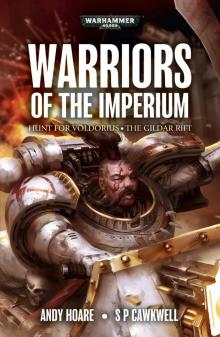 Warriors of the Imperium - Andy Hoare & S P Cawkwell
Warriors of the Imperium - Andy Hoare & S P Cawkwell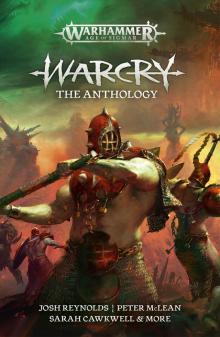 Warcry
Warcry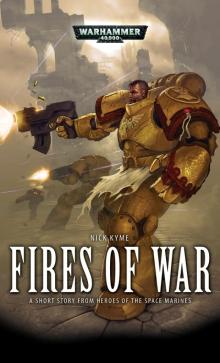 Fires of War - Nick Kyme
Fires of War - Nick Kyme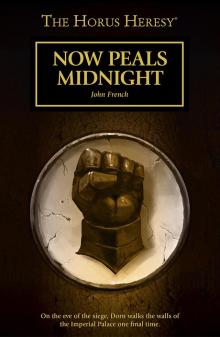 Now Peals Midnight - John French
Now Peals Midnight - John French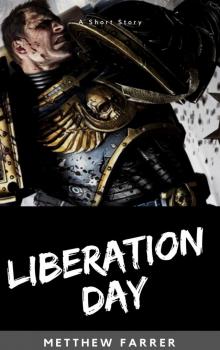 Liberation Day - Matthew Farrer
Liberation Day - Matthew Farrer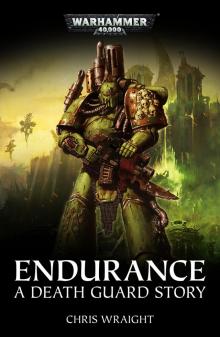 Endurance - Chris Wraight
Endurance - Chris Wraight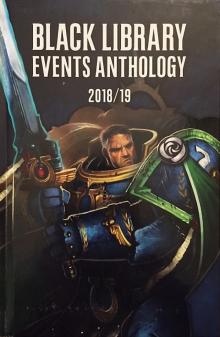 Black Library Events Anthology 2018-19
Black Library Events Anthology 2018-19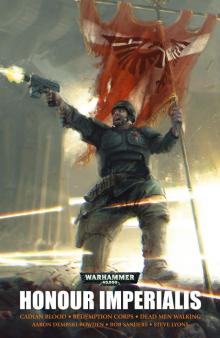 Honour Imperialis - Braden Campbell & Aaron Dembski-Bowden & Chris Dows & Steve Lyons & Rob Sanders
Honour Imperialis - Braden Campbell & Aaron Dembski-Bowden & Chris Dows & Steve Lyons & Rob Sanders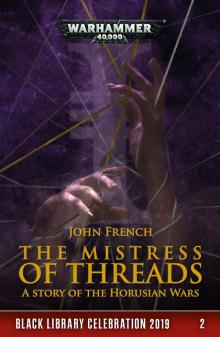 The Mistress of Threads - John French
The Mistress of Threads - John French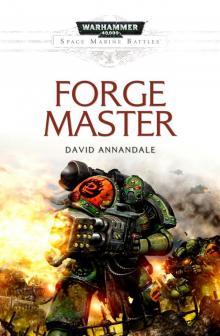 Forge Master - David Annandale
Forge Master - David Annandale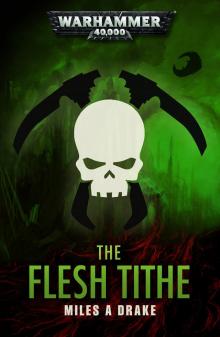 The Flesh Tithe - Miles A Drake
The Flesh Tithe - Miles A Drake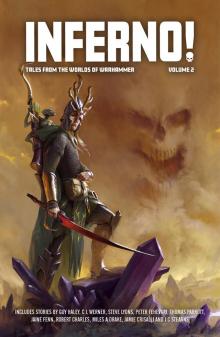 Inferno Volume 2 - Guy Haley
Inferno Volume 2 - Guy Haley Mercy of the Dragon - Nick Kyme
Mercy of the Dragon - Nick Kyme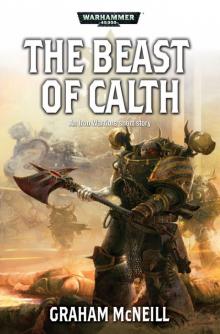 The Beast of Calth - Graham McNeill
The Beast of Calth - Graham McNeill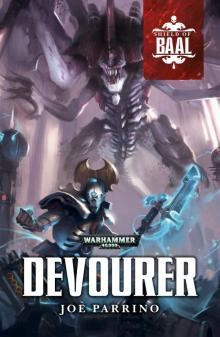 Devourer - Joe Parrino
Devourer - Joe Parrino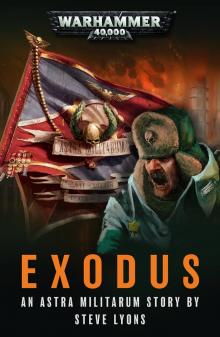 Exodus - Steve Lyons
Exodus - Steve Lyons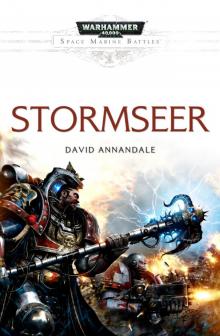 Stormseer - David Annandale
Stormseer - David Annandale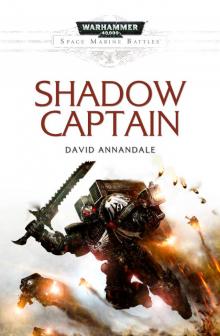 Shadow Captain - David Annandale
Shadow Captain - David Annandale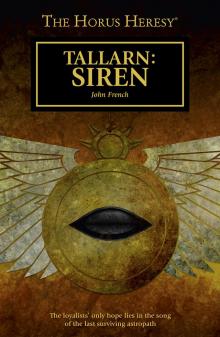 Tallarn- Siren - John French
Tallarn- Siren - John French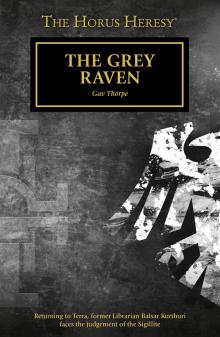 The Grey Raven - Gav Thorpe
The Grey Raven - Gav Thorpe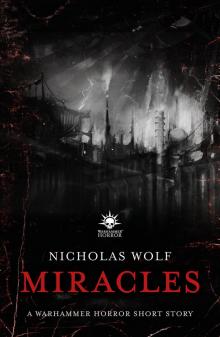 Miracles - Nicholas Wolf
Miracles - Nicholas Wolf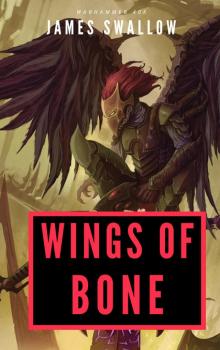 Wings of Bone - James Swallow
Wings of Bone - James Swallow